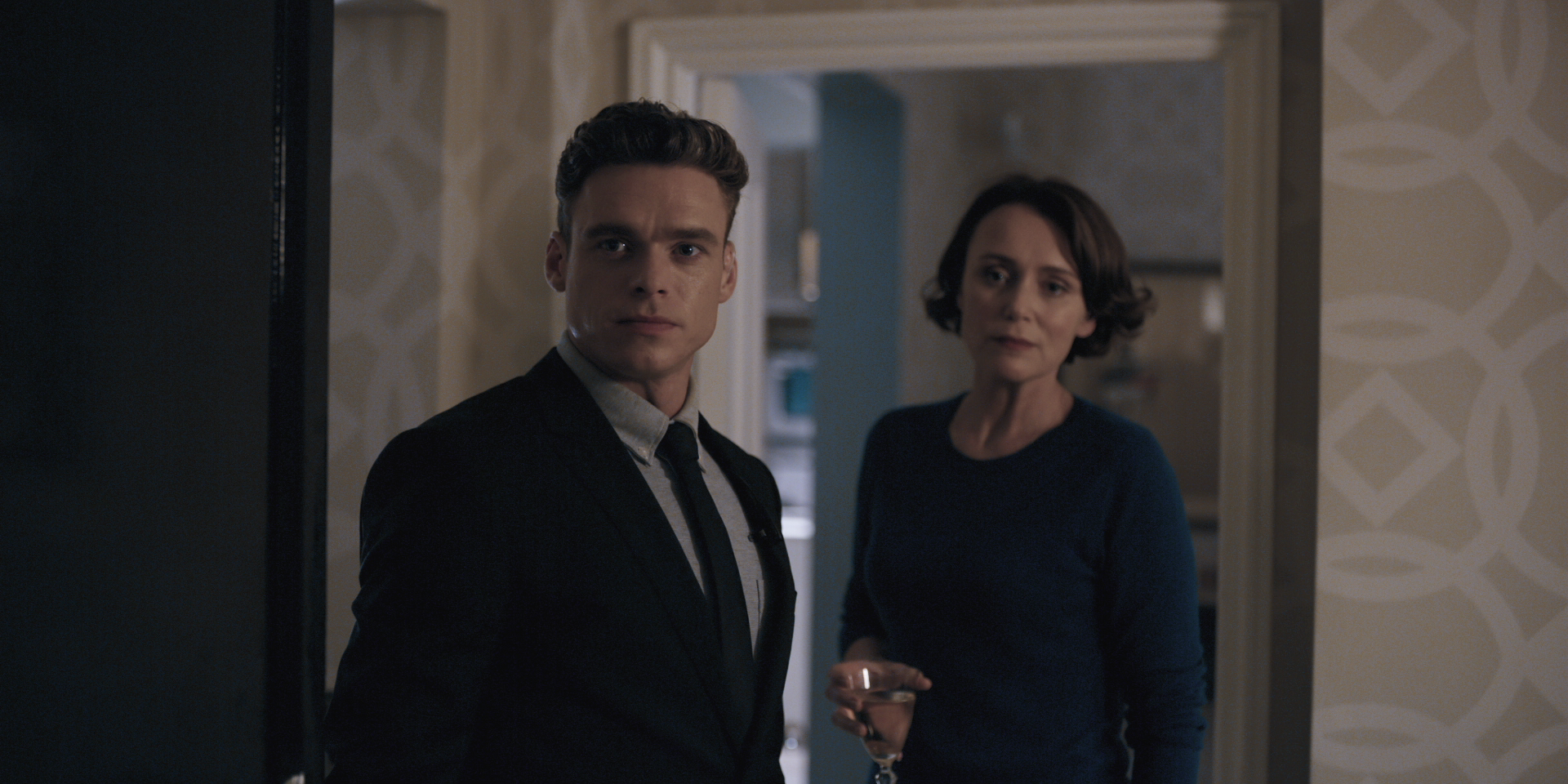
News
When Professors Speak Out, Some Students Stay Quiet. Can Harvard Keep Everyone Talking?

News
Allston Residents, Elected Officials Ask for More Benefits from Harvard’s 10-Year Plan

News
Nobel Laureate Claudia Goldin Warns of Federal Data Misuse at IOP Forum

News
Woman Rescued from Freezing Charles River, Transported to Hospital with Serious Injuries

News
Harvard Researchers Develop New Technology to Map Neural Connections
‘Bodyguard’ Brings to Light the Danger of Fearmongering


“We’re politicians, not murderers.” This line, spoken by an advisor to the British Home Secretary during police inquiries, reflects a central theme in BBC One’s hit television series “Bodyguard,” now available on Netflix. The show does a superb job of raising questions about Britain’s involvement in the war in Afghanistan and the rehabilitation of soldiers all while providing fast-paced action. With compelling acting and a tense soundtrack that engenders serious vicarious anxiety, this series will both enthrall and terrify.
The dashing Richard Madden stars as an Afghanistan war veteran turned cop, Sergeant David Budd, who, after thwarting a terrorist attack on a train, is assigned to protect the staunchly conservative home secretary Julia Montague (Keeley Hawes). Budd has reservations about becoming her bodyguard, because she supported the very war that shattered his life — one that left him physically scarred, suffering from PTSD, and separated from his wife Vicky (Sophie Rundle). In his new role, Budd quickly becomes exposed to the dubious world of politics. His superiors at the Metropolitan Police, boss Lorraine Craddock (Pippa Haywood), and head of counter terrorism Commander Anne Samson (Gina McKee), ask him to spy on Montague, suspecting her of corruption and fearmongering. This assignment makes him uneasy, but only more so when he begins an affair with Montague. As continual attacks are made on the home secretary’s life due to internal leaks, Budd struggles to trust those around him. He begins to suspect and investigate a larger, more dangerous, power at hand.
Madden is exceptionally strong in the role of a traumatized Scottish vet. We often see events through his eyes, learning clues when he does or else travelling with him as he investigates. Though he tries suppress it, Budd’s PTSD often gets the better of him. He suffers from frequent panic attacks during which the camera zooms on his face, blurring out the surroundings as intense buzzing blares. These instances are particularly useful in exposing Budd’s frame of mind and allowing access to his tumultuous feelings. Moments like these are also intended to bring to mind the government’s involvement in recent wars draw particular attention to the difficulties that veterans face in reintegrating into society after witnessing unfathomable atrocities.
Hawes is riveting as Montague. Though in many ways her character presents controversial opinions, she is a formidable force of power and her unapologetic attitude is refreshing. She and Madden have excellent chemistry, which almost comes at a surprise given how their relationship begins. Generally speaking, strong female characters bolster the cast — particularly Haywood and McKee with their biting sardonic comments — who prove to be quite a match for many of the condescending males in power.
The show is also concerned with how governments weaponize fear and deeply ingrained xenophobia in order to control citizens and strip them of civil liberties. Montague is most emblematic of this as she plays on people’s distress over terrorism to gain power within her government, but the show also implies that most of the upper-level members of government are equally susceptible to these manipulations.
During a scene early in the first episode, David re-watches Montague’s latest interview, repeatedly rewinding a section during which she gives her thoughts on British interference in the Middle East. Her sentiments on past actions could not be any more clear: “The PM has been very clear on how we deal with the present and build a secure future. That doesn’t require apologizing for the past.” The camera moves in closer to Madden’s livid and fuming face, as the words loop over and over, his rage and trauma growing increasingly palpable. This disapproval and criticism over the Afghanistan War is not a particularly fresh opinion, but this excellently constructed scene exemplifies how the show manages to capture important issues and portray them in electrifying ways.
The excellent soundtrack composed by Ruth Barrett and Ruskin Williamson is also a star of the show. It almost single-handedly enlivens and intensifies the fighting and bomb defusing scenes. Altogether, the combination of high-quality stylistics and frightening, slightly melodramatic action scenes makes the show lively.
—Staff writer Aline G. Damas can be reached at aline.damas@thecrimson.com.
Want to keep up with breaking news? Subscribe to our email newsletter.
